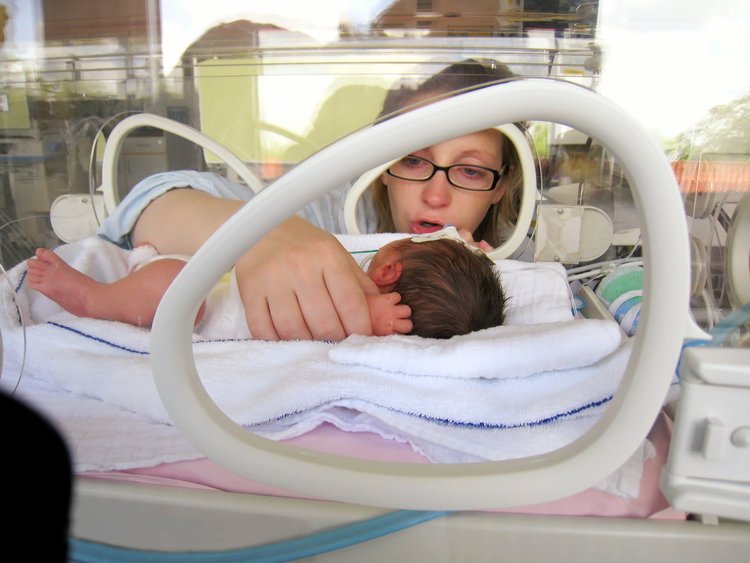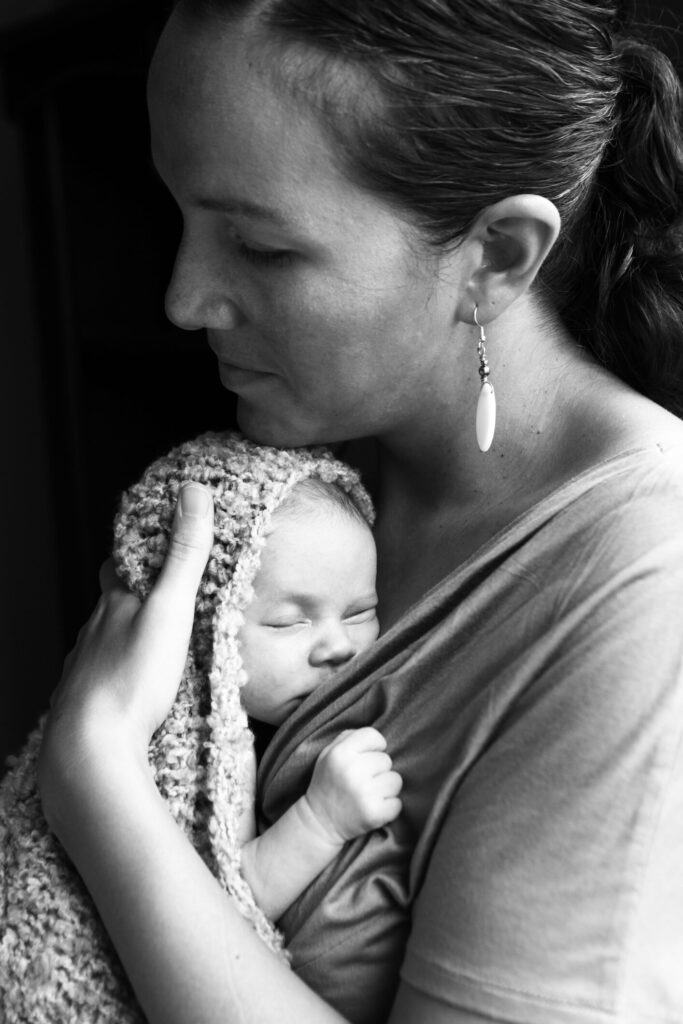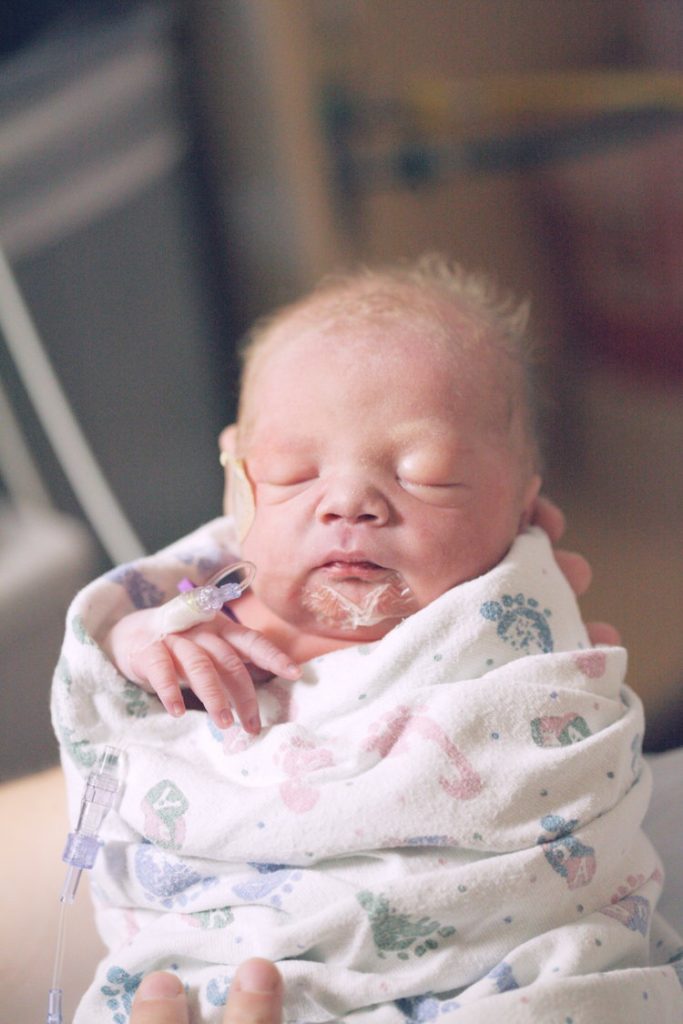
Neonatal Intensive Care Units (NICUs) are all designed differently. Some have private rooms where moms and babies stay together – with beds for moms. Others may have many infants in a single room or pod and hardly even a comfortable chair available much less a place to sleep. Regardless, NICUs often have a lot of medical equipment, noises, and people coming and going.
There are often different rules that may not be easy to understand – especially when you are tired and recovering from giving birth. Don’t be afraid to ask questions – ask a support person to take notes and help you remember.
There may be confusing expectations – nurses that expect parents to be there all the time, feelings of being judged as a parent, and questions about what went “wrong” and why. You may also receive a lot of support from a wide variety of people including social workers, lactation specialists, care coordinators, clergy, volunteers, and nurses.
The nurses and doctors in the NICU are focusing on your baby – which is exactly what you want. Some may or may not notice if you are having health issues. Women with infants who are in the hospital are more likely to have had challenging deliveries, health conditions that need attention, and are at higher risk for having postpartum depression. While most women feel that they have to put their best foot forward, showing that they are “good moms” they often do this at the expense of their own health and well-being. Know that YOU matter and that your health is important to your baby too.
Parents Mental Health in the NICU
Most families find that having a baby in the NICU is a stressful event. Being in the NICU is probably not how you pictured your newborn’s first days. Events surrounding the birth may have been traumatic or overwhelming, and you may not have had time to process them. The NICU can also be scary and confusing, with lots of monitors, medical equipment, alarms, and a variety of staff caring for your child. Many parents experience a range of emotions in the hospital and after their baby comes home, including, stress, anxiety, depression, and guilt. In fact, one study found that 30% of mothers of babies who required NICU care had post-traumatic stress disorder at one month postpartum. Another study found some common themes among parents who have had NICU experiences:
- The NICU can be isolating. It can feel like a whole other world from the town or even other floors of the hospital. Feeling disconnected, unseen, and upset can also continue once baby comes home. Mothers may feel concerned about germs and worrying about taking the baby out in public or inviting people over because of the fear of the baby getting sick. These concerns may be valid. It is a hard road to navigate.
- The hospital is a very controlled environment, with lots of professionals around monitoring and caring for the baby, which can cause a lot of anxiety once baby comes home and no longer has that level of oversight. Trust yourself and also learn from others that have experience in your circumstances, including health care professionals and other parents.
- Mothers who had NICU experiences also may not feel connected to other mothers who had healthy babies in the immediate postpartum period.
- Finally, mothers may feel a lack of both professional and social support.
It doesn’t have to be this way! Ask to talk with a social worker or care manager in the NICU and see if they can help you find a professional who can guide you through this time. You can also ask your health care provider if he/she can refer you to a professional who can help. While this can be hard, families are strong and with support you can get through this experience closer and stronger than ever before.
Resources to Explore:
- The March of Dimes has some tips for orienting yourself to the NICU
- The Australian parenting website has some good tips on self-care for mothers with babies in intensive care nurseries
- Lucie’s List has good tips for NICU parents as well as tips for when baby comes home






